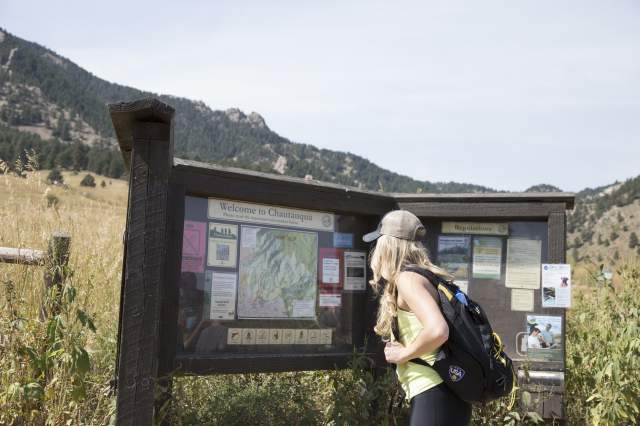Care for Colorado
with Leave No Trace
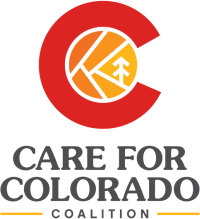 When you come to Boulder, or any place in Colorado, you might get a sense that locals love the land. In Boulder, this respect for Mother Earth started over a century ago and took firm hold in 1967 when Boulder became the first city in the country to purchase open space.
When you come to Boulder, or any place in Colorado, you might get a sense that locals love the land. In Boulder, this respect for Mother Earth started over a century ago and took firm hold in 1967 when Boulder became the first city in the country to purchase open space.
We still passionately advocate for the conservation of our parks and open spaces and have partnered with Leave No Trace to bring ethical conservation and recreation practices to the forefront for locals and visitors alike. Understanding how to minimize our impact is a small step we can all take to ensure Boulder’s beauty perseveres for years to come.
Know Before You Go
- The City of Boulder Open Space and Mountain Parks helps maintain and preserve our beautiful parks, open spaces and wilderness areas. Learn about and respect these lands and how best to navigate them.
- Stay back from the pack. Find your way to less-visited and off-peak destinations to minimize downtime and maximize your connection with special places.
- Bring along reusable water bottles or hot drink tumblers to limit waste and stay hydrated in our dry climate.
- Check the conditions of the places you plan to visit, especially in winter. Be aware of the latest news for weather and snow as well as for road and trail closures. The City of Boulder's website lists trail and area closures.
- Know your own limits and your group’s as well. Don’t push anyone to take risks in snowy or icy weather — or any weather for that matter.
- Be aware that there is no camping allowed in the city of Boulder, but there are some designated camping options nearby.
- You can enjoy much of Boulder's open space with your pup by your side. For answers to questions like "Does my dog need to be on a leash?" and "Which trails are okay for dogs?," see the City of Boulder's website.
- Before you head out on snowy adventures, take the Colorado Backcountry Winter Safety Awareness Pledge, and commit to protecting yourself and others while exploring.
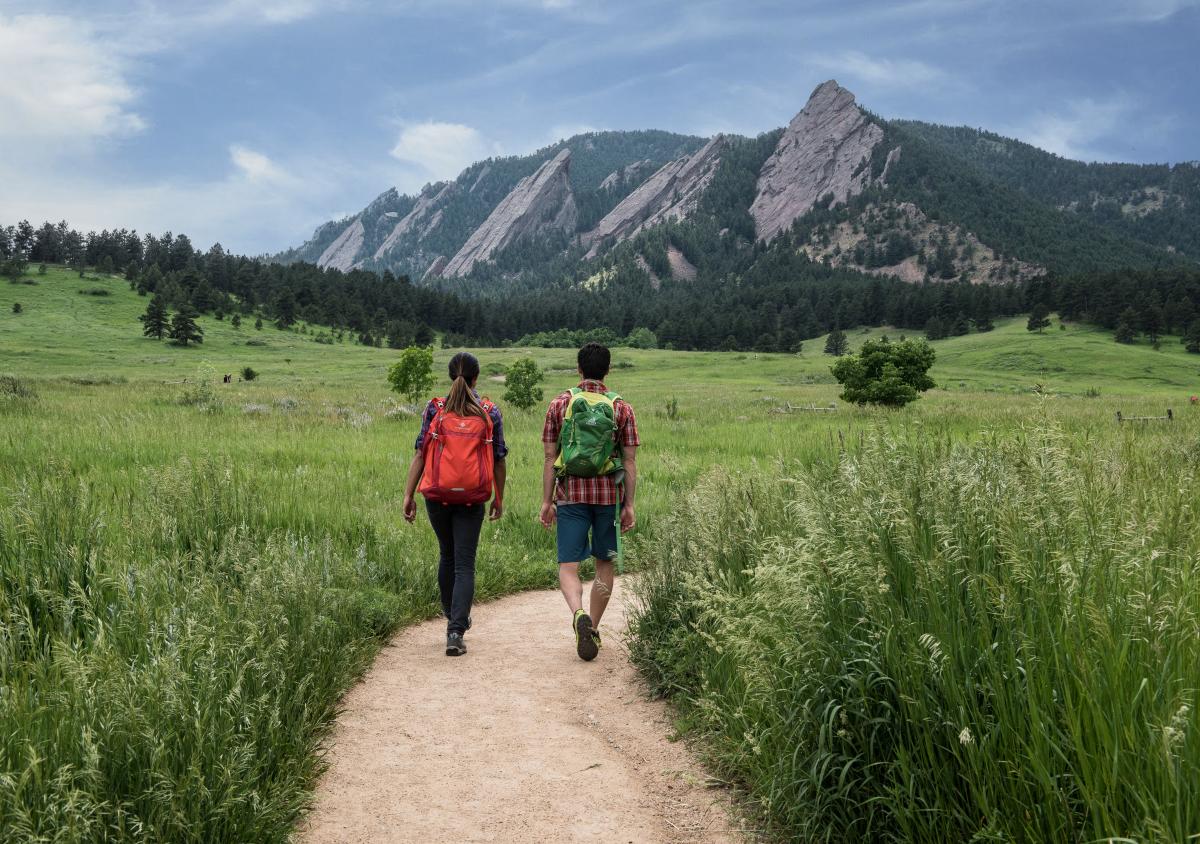
Stick To Trails
- With 300 miles of trails in the city, there’s no need to venture beyond designated paths. By sticking to the trails you help minimize the impact of the millions of visitors Boulder’s parks receive every year, reducing erosion and keep our wild spaces wild!
- Even though shortcuts can be tempting, please don’t take them. A few extra strides on the path will protect plants and the homes of the true locals.
- Melting snow leaves trails and vegetation more open to damage. If traveling on deep snow is not an option, be sure to stick to trails and walk in the middle of the trail — even if it’s wet, slushy or icy — to avoid erosion and damage to trailside plants.
- Make sure to wear sturdy footwear — like insulated, waterproof hiking boots — so you can always stick to the trail, particularly in winter when there may be snow or ice on the ground.
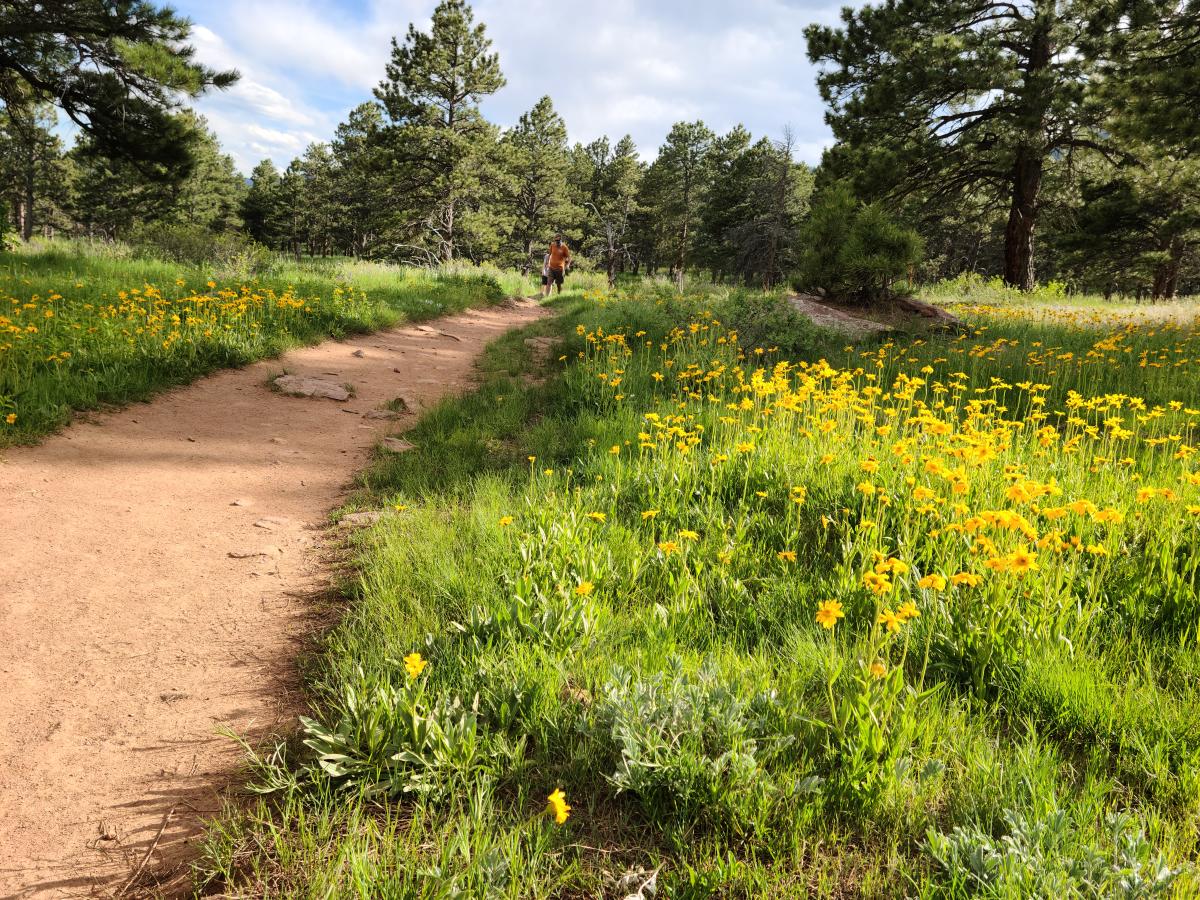
Trash the Trash
- Pack it in, pack it out. Or pick it up to leave a place better than you found it. Put litter, even crumbs, peels and cores, in your nearest waste/recycling bin.
- Your pet's number two is one of our number one issues. Please make sure you bring bags to pick up your dog's poo and pack it out.
- If you have to poo, walk at least 70 steps from trails, water and people. Dig a cat hole 6 inches deep, do your thing in the hole, cover it and pack out your TP. Or, use a wag bag (a disposable bag found in most outdoor stores) so you can pack out your waste.
- Wash yourself, your dog or whatever else needs cleaning at least 200 feet from waterways, and use biodegradable soap. A bubble bath is no treat for fish.
- In winter months, organic matter is slow to break down, so it’s especially important to pack out all shells, peels, crusts and cores. This goes double for dog waste.
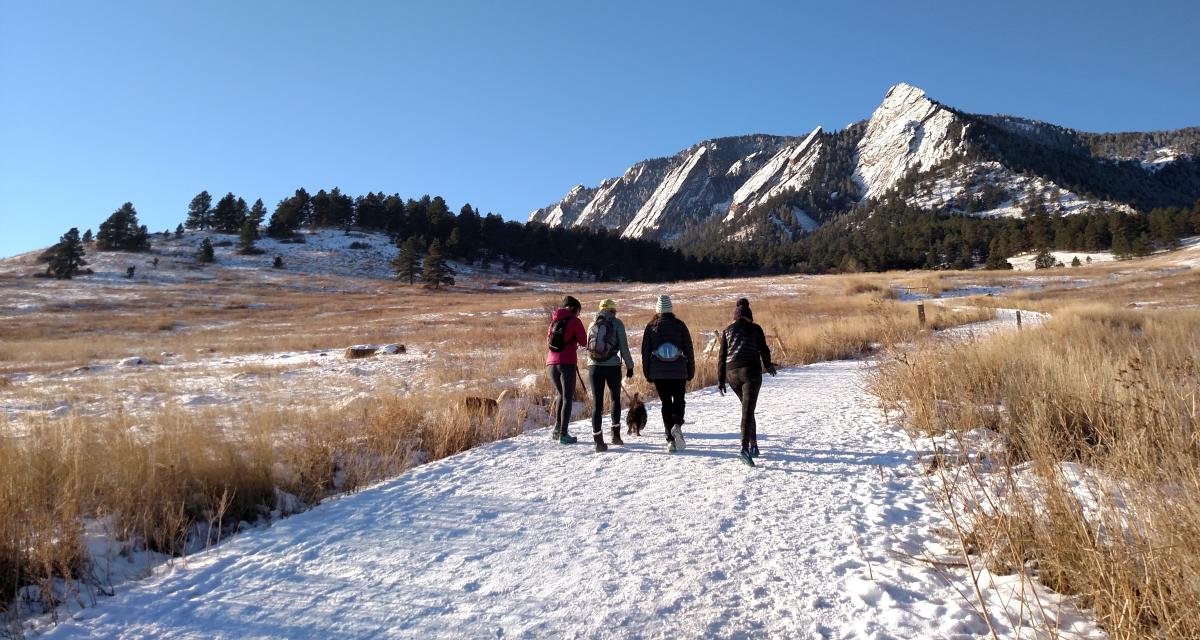
Leave It As You Find It
- Leave plants, rocks and historical items as you find them so others experience the joy of discovery.
- Any of our 750 different species of wildflowers will live forever in a photo. Snap away, but only with a camera.
- Boulder is beautiful all on its own. Building structures or campsites on public land isn’t cool, and oftentimes illegal. Keep it pristine for everyone to enjoy.
- Treat all living things with respect. Carving or hacking plants and trees may kill or disfigure them.
- Dismantle any snow structures you build before you leave.
- When taking a skiing or snowshoeing hut trip, leave your hut better than you found it. Be considerate of other users, and follow the instructions.
- Don’t leave food or trash behind as it may attract mice or other unwanted creatures, even in winter.
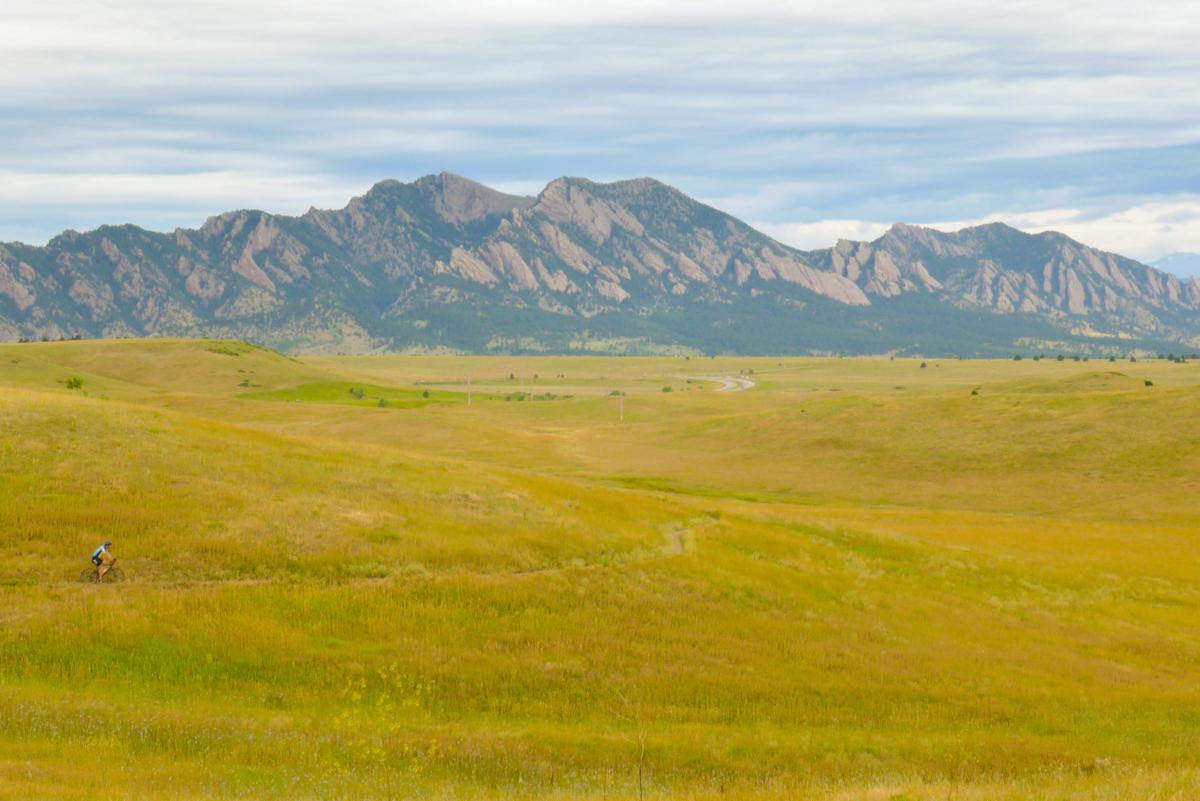
Be Careful With Fire
- Use care when smoking in Boulder’s dry climate. Always put out cigarettes completely and don’t leave your butts behind.
- Camping and campfires are illegal within the city of Boulder. If venturing outside of town, be sure to check local fire restrictions.
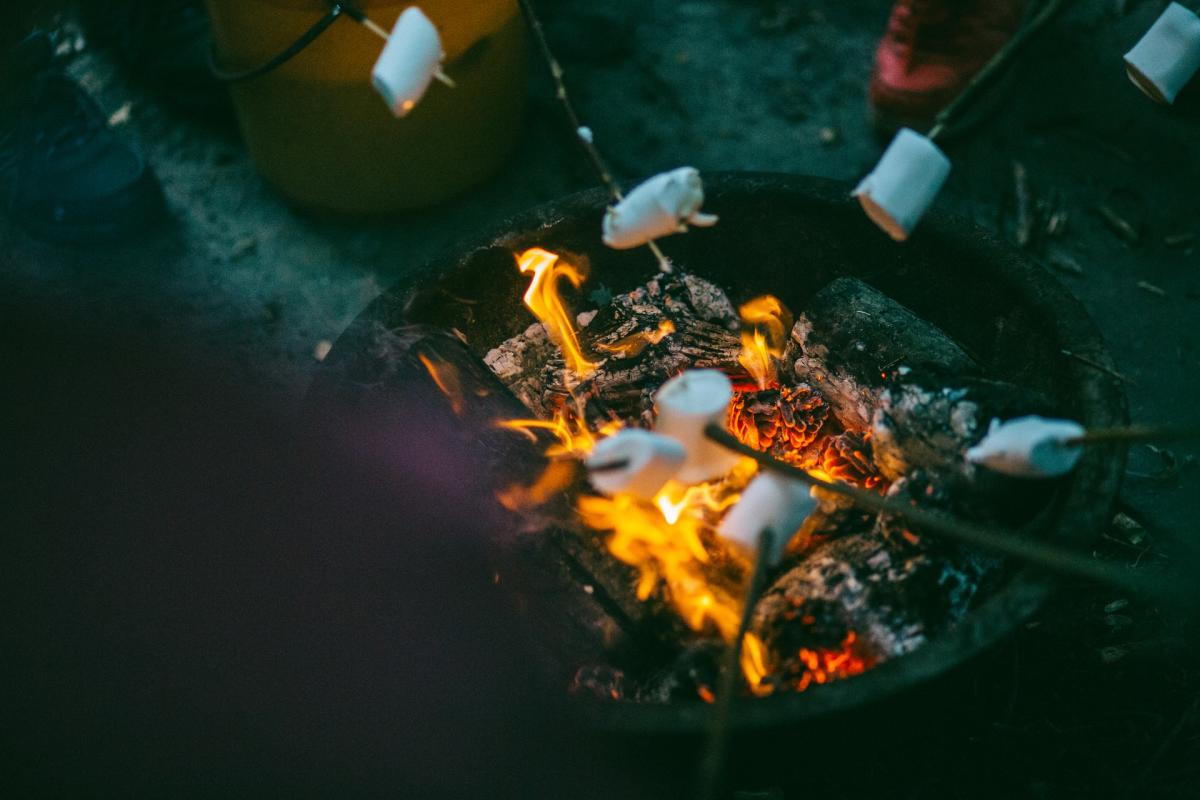
Keep Wildlife Wild
- Boulder is home to many furry, scaly, and feathered creatures. To keep them—and you—safe, don’t approach them.
- It is not adorable to feed wild animals. You could alter natural behaviors, exposing them to predators or even euthanasia.
- Keep your furry buddies leashed when enjoying dog-friendly trails, and pack out their waste. All the way to a trashcan.
- All wildlife from squirrels to moose have to work a lot harder to survive in winter. Observe all wildlife from a distance, and do not follow or pursue them. Fleeing forces them to burn energy they need to survive the colder months.
- Do not feed wildlife no matter how hungry they might look, even in the winter.
- Use the Rule of Thumb when around wildlife. Raising your hand with thumb pointing up, to eye-level, close one eye, and try to cover the animal with your thumb. If the animal disappears behind your thumb, you are at a safe distance. If your thumb does not completely cover the animal, you are too close and need to find a safe way to distance yourself from the animal.
- Road degradation, fumes from vehicles and noise pollution all put stress on the local flora and fauna. Instead try to walk, pedal or take public transportation to get from here to there. On summer weekends, check out our hiker shuttles.
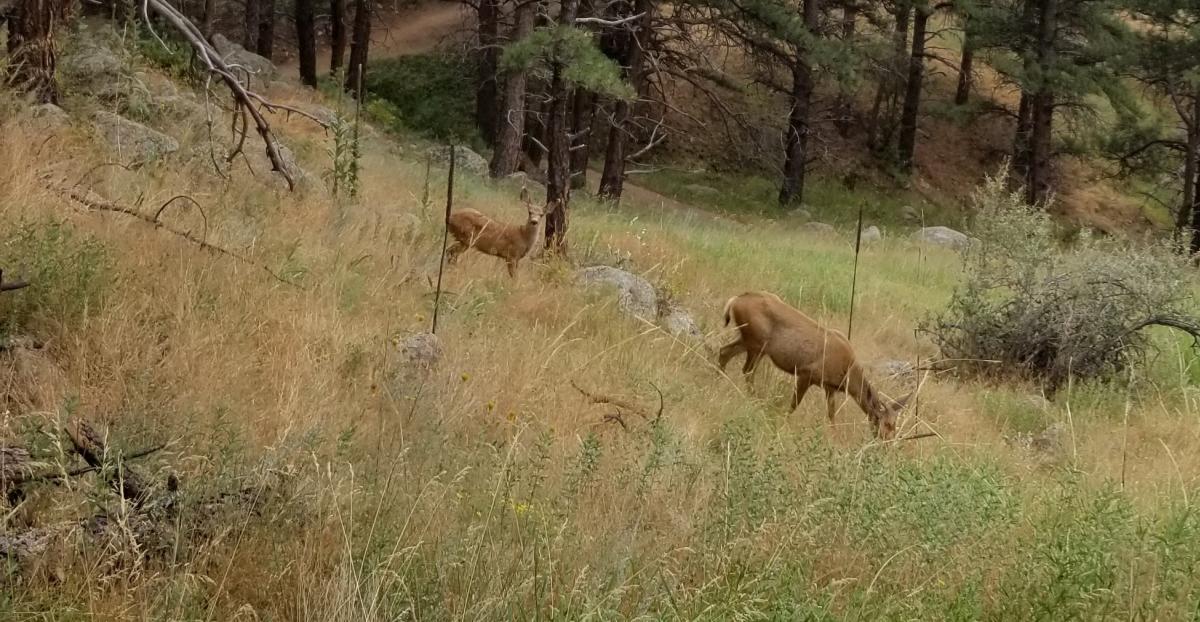
Share Our Trails & Parks
- Chances are you’re not out in nature to people-watch, so try out the lesser-known paths and sites.
- Silence your cell phone before stepping into nature and speak softly without using the speaker function.
- Be considerate when passing others on the trails and yield to the uphill hiker and biker — they need the momentum.
- When ascending trails in winter, keep clear and yield to downhill traffic. Separate ski and snowshoe tracks, and avoid hiking on either.
- Listen to nature. Keep your voice soft and your music in your headphones only so all can enjoy the peace of Colorado.
Leave No Trace Seven Principles © 1999 by the Leave No Trace Center for Outdoor Ethics: www.LNT.org
More Ideas for You
Green Boulder
Boulder is a community with high ethical standards focused on preserving natural open space, a clean…
Eco-Friendly Travel
Are you a traveler who likes to minimize your impact when you visit a place? You’re not alone…
Car-Free
One of the best perks of visiting Boulder is its compact, walkable geographical area and ease of…





